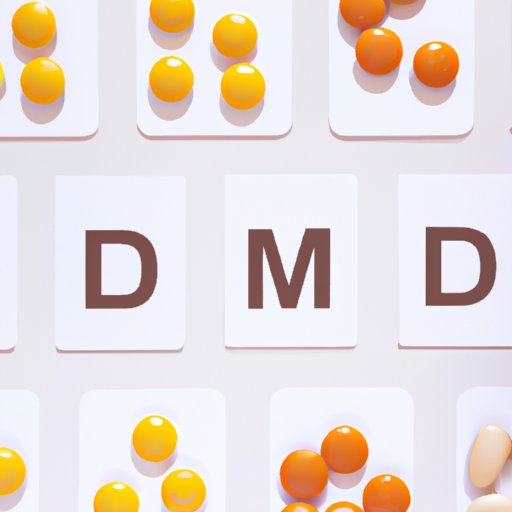
Exploring How to Help Your Body Absorb Vitamin D: Food Sources, Sun Exposure, Supplements, Lifestyle Habits, and Absorption Factors
As a crucial nutrient, Vitamin D plays an essential role in keeping our bodies healthy. From supporting bone health to regulating immune function, getting enough of this vital nutrient is vital to overall health and well-being. However, despite its significance, many people, particularly those living in areas with reduced sunlight exposure, may not be getting enough of this nutrient. To help you keep your Vitamin D levels up, this article explores various ways to help your body absorb this essential nutrient.
Food Sources
Food is an important source of Vitamin D. Foods that are naturally rich in Vitamin D include fatty fish such as salmon, tuna, and mackerel. Other sources include egg yolks, beef liver, and cheese. Many breakfast cereals and dairy products are also fortified with Vitamin D, making it easier for people to get more of the nutrient.
Incorporating Vitamin D-rich foods into your diet can go a long way in increasing your Vitamin D levels. However, it’s important to keep in mind that for most people, diet alone may not provide sufficient Vitamin D, which brings us to our next point.
Sun Exposure
Why not have some fun in the sun while you’re at it? Sun exposure is one of the most effective ways to obtain Vitamin D. When the sun’s ultraviolet rays penetrate the skin, they activate Vitamin D synthesis in the body. However, the optimal time to get sun exposure and how long exposure should last varies depending on factors such as skin tone, age, weight, and geographic location.
As a general rule, getting moderate sun exposure, ideally between 10 am and 3 pm, is advisable. However, it’s important to note that too much sun exposure can lead to sunburn, skin damage, and skin cancer. To avoid this, consider spending time outdoors when UV rays are less intense, such as early morning or late afternoon. Additionally, you can protect your skin by wearing protective clothing and applying sunscreen with a sun protection factor (SPF) of at least 30 before going outside.
Supplements
If you’re not getting enough Vitamin D from food or sun exposure, supplements can be a practical solution. Vitamin D supplements are widely available, and they come in various forms, such as capsules, tablets, and liquids. The two most common forms of Vitamin D in supplements are Vitamin D2 and Vitamin D3.
Vitamin D3 is the preferred supplement form as it is the same form naturally produced in the body in response to sunlight exposure, and it is more bioavailable than Vitamin D2. The recommended daily supplement dosage is 600-800 IU, although this may vary depending on individual needs. Consult with a healthcare professional to determine the appropriate dosage for you.
Lifestyle Habits
Incorporating healthy lifestyle habits can also help to increase Vitamin D levels. For instance, regular physical exercise can stimulate Vitamin D production in the body and lead to increased absorption. Therefore, going for walks, jogging, or cycling outdoors may help increase your Vitamin D levels while keeping you fit and healthy.
Finding ways to spend more time outdoors and engage in outdoor activities can be another way to boost your Vitamin D levels. Spending time gardening, hiking, or playing outdoor sports can be a fun way to achieve this.
Absorption Factors
Several factors can impact Vitamin D absorption in the body. For instance, as we age, our skin becomes less efficient at synthesizing Vitamin D, which can lead to a decrease in Vitamin D levels. Similarly, having a higher body weight can make it harder for the body to absorb Vitamin D, leading to lower Vitamin D levels.
Another key factor that affects Vitamin D absorption is skin tone. Individuals with darker skin tones may take longer to produce Vitamin D in response to sunlight exposure. Therefore, they may require more sun exposure or higher supplement doses to achieve optimal Vitamin D levels. Additionally, overall health status, certain medications, and certain medical conditions can impact Vitamin D absorption.
To optimize Vitamin D absorption in different scenarios, you can take certain steps. For instance, exercise, eating a well-balanced diet, maintaining a healthy weight, and practicing sun safety are all ways to optimize Vitamin D absorption.
Conclusion
Getting enough Vitamin D has numerous benefits for overall health and well-being. Incorporating Vitamin D-rich foods into your diet, getting moderate sun exposure, taking Vitamin D supplements, adopting healthy lifestyle habits, and optimizing absorption factors can all help you maintain optimal Vitamin D levels. Remember to consult with your healthcare provider to ensure that you’re getting enough Vitamin D to support your unique health needs and goals.





